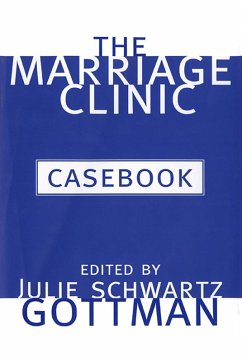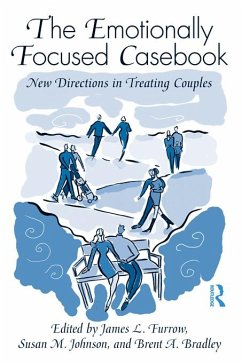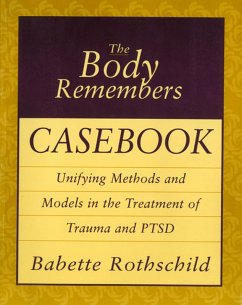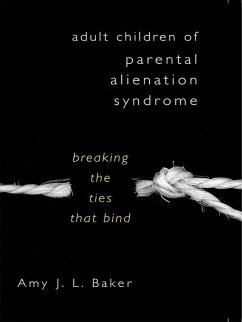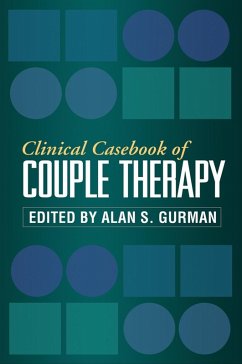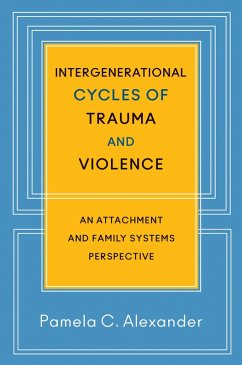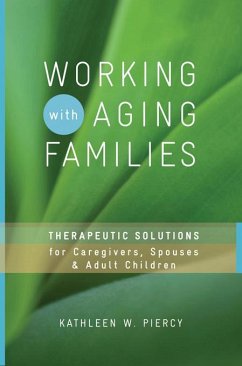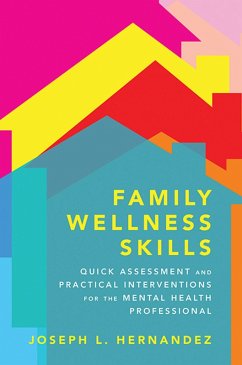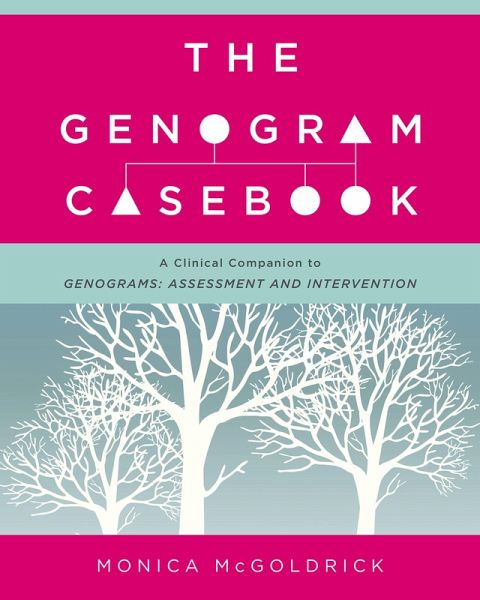
The Genogram Casebook (eBook, ePUB)
A Clinical Companion to Genograms: Assessment and Intervention

PAYBACK Punkte
8 °P sammeln!
A long-awaited workbook companion to Monica McGoldrick's highly successful textbook Genograms. This clinical companion to the bestselling Genograms: Assessment & Intervention uses case examples to articulate the most effective ways to use genograms in clinical practice. Widely utilized by family therapists and health care professionals, the genogram is a graphic way of organizing the mass of information gathered during a family assessment and finding patterns in the family system for more targeted treatment. For a client with cutoff relationships or a history of trauma, it can be hard to talk ...
A long-awaited workbook companion to Monica McGoldrick's highly successful textbook Genograms.
This clinical companion to the bestselling Genograms: Assessment & Intervention uses case examples to articulate the most effective ways to use genograms in clinical practice.
Widely utilized by family therapists and health care professionals, the genogram is a graphic way of organizing the mass of information gathered during a family assessment and finding patterns in the family system for more targeted treatment. For a client with cutoff relationships or a history of trauma, it can be hard to talk to a therapist about past and present relationships. Genograms are a non-intrusive and non-confrontational way to learn about a client's history and chart crucial, complex information for effective assessment and therapy.
The Genogram Casebook deploys richly detailed case examples to address resistance to genograms, overcoming dysfunctional relationship patterns, working with couples, navigating issues of divorce and remarriage, using genograms in family sessions with children, repairing conflict and cutoff with family members, looking at the therapist's own family, and much more. It's a vibrantly practical, decisively essential guide to the use of genograms in mental health practice.
This clinical companion to the bestselling Genograms: Assessment & Intervention uses case examples to articulate the most effective ways to use genograms in clinical practice.
Widely utilized by family therapists and health care professionals, the genogram is a graphic way of organizing the mass of information gathered during a family assessment and finding patterns in the family system for more targeted treatment. For a client with cutoff relationships or a history of trauma, it can be hard to talk to a therapist about past and present relationships. Genograms are a non-intrusive and non-confrontational way to learn about a client's history and chart crucial, complex information for effective assessment and therapy.
The Genogram Casebook deploys richly detailed case examples to address resistance to genograms, overcoming dysfunctional relationship patterns, working with couples, navigating issues of divorce and remarriage, using genograms in family sessions with children, repairing conflict and cutoff with family members, looking at the therapist's own family, and much more. It's a vibrantly practical, decisively essential guide to the use of genograms in mental health practice.
Dieser Download kann aus rechtlichen Gründen nur mit Rechnungsadresse in A, D ausgeliefert werden.




